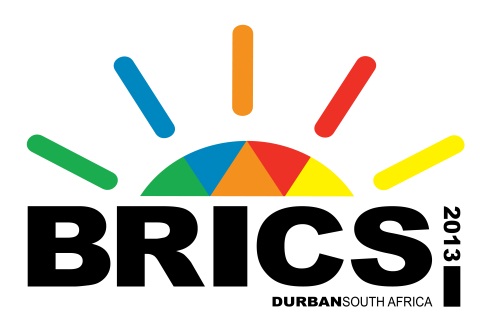

BRICS Information Centre

 |
 BRICS Information Centre |
 |

Statement by Indian Prime Minister Manmohan Singh
after the Plenary Session of the 5th BRICS Summit
Durban, South Africa, March 27, 2013
[see also Analysis by the BRICS Research Group]
Please allow me to begin by congratulating South Africa for hosting this important Summit. As India passes the baton of the Chairmanship of BRICS to South Africa, it does so with a sense of satisfaction at the distance that we have covered in the course of the past year. I wish to convey my profound gratitude to our BRICS partners and colleagues for their unstinted support to India in discharging its duties as Chair. I am confident that President Zuma’s wise leadership in the coming year will further strengthen intra-BRICS cooperation and increase its global role and relevance.
Over the past year, our ministerial and official consultations have intensified across a broad range of areas. BRICS coordination and consultation has become an integral part of our participation in international forums, such as G-20. It has given us a stronger voice in articulating our shared concerns. It has enabled us to participate more effectively in addressing global challenges. We have also deepened our efforts to promote peace, stability and security through a meeting of National Security Advisers.
People to people contacts, exchanges amongst our think-tanks, and engagement between our business communities have strengthened. We have explored new areas of interaction, such as addressing the common challenges of urbanization and cooperating on customs and revenue issues. The BRICS Development Bank initiative has opened the doors to new possibilities of cooperation.
Today, we are completing the first cycle of BRICS Summits. It is my belief that, over the last five Summits, our forum has become more cohesive and more relevant. We derive as much value from our diversity as from our synergies; equally, we stand to benefit enormously from our convergence and collective strength.
As we look to the future, the progress over the past five years encourages us to set higher ambitions, seek new avenues and set new goals for our cooperation. However, our roadmap for the future should focus on consolidating and deepening our existing cooperation. We should also carefully prioritize existing and new areas, keeping in view our strengths, our resources and the difference we can make, both for our people and the world. I would like to make five suggestions in this regard.
First, our foremost challenge is to respond to the persisting weaknesses in the global economy, the financial crisis overhang and the inevitable long term structural changes in the post-2008 world. Recognizing that BRICS countries will remain key drivers of global economic growth, we should further sustain our growth by harnessing the vast opportunities for expanding trade and investment ties between ourselves. Each of us has unique sets of resources and strengths and we should exploit our complementarities for mutual benefit. We should also seek increased cooperation in manufacturing and services sectors. The measures agreed upon today will help us meet these objectives.
Second, the external focus of our research and development cooperation tends to be on the developed world. It would be equally useful, though, to encourage collaboration between institutions in BRICS countries because our experiences and solutions will have relevance for each other, particularly in areas like energy, food security, education, healthcare, sustainable development and IT-enabled public services.
Third, we should individually and collectively work to make economic development more broad-based and inclusive. This is not only a moral imperative, but a pragmatic approach to make the global economy more sustainable and enhance political and social stability in vulnerable parts of the world.
Fourth, we should work more cohesively in international forums to advance the agenda of sustained global economy recovery and promote a balanced outcome on issues such as trade, sustainable development and climate change, in a manner that protects our shared interests and those of the entire developing world.
Finally, we should work for a reform of global institutions of political and economic governance that reflects contemporary realities and equips them more effectively to deal with emerging challenges. In particular, reform of the United Nations Security Council and the IMF are urgently needed.
Our collective efforts in each of these areas would be of great benefit to Africa. However, BRICS should also directly support the process of development and change now underway in Africa. The overarching Summit theme of partnership between BRICS and Africa is, therefore, very apt. The outcomes of this Summit reflect our shared commitment in this regard.
The world today faces uncertainties, turbulence and transition on an unprecedented scale, leading to multiple economic and security challenges for us. Terrorism, piracy and the emerging threats from cyber-space are important security concerns for us. It is incumbent upon us to use our collective voice and capacity and make an effective and meaningful contribution to addressing these challenges and fostering global peace, stability and security.
In conclusion, let me once again reaffirm the importance that India attaches to BRICS, not only for the benefit of our people, but also for the world at large. My conviction comes not merely from our capacity, but also from the purposeful manner in which we have worked together. I am sure the forum will scale new heights in the years to come. I assure President Zuma of our full support as he leads this forum over the coming year.”
Source: Official Website of the Prime Minister of India